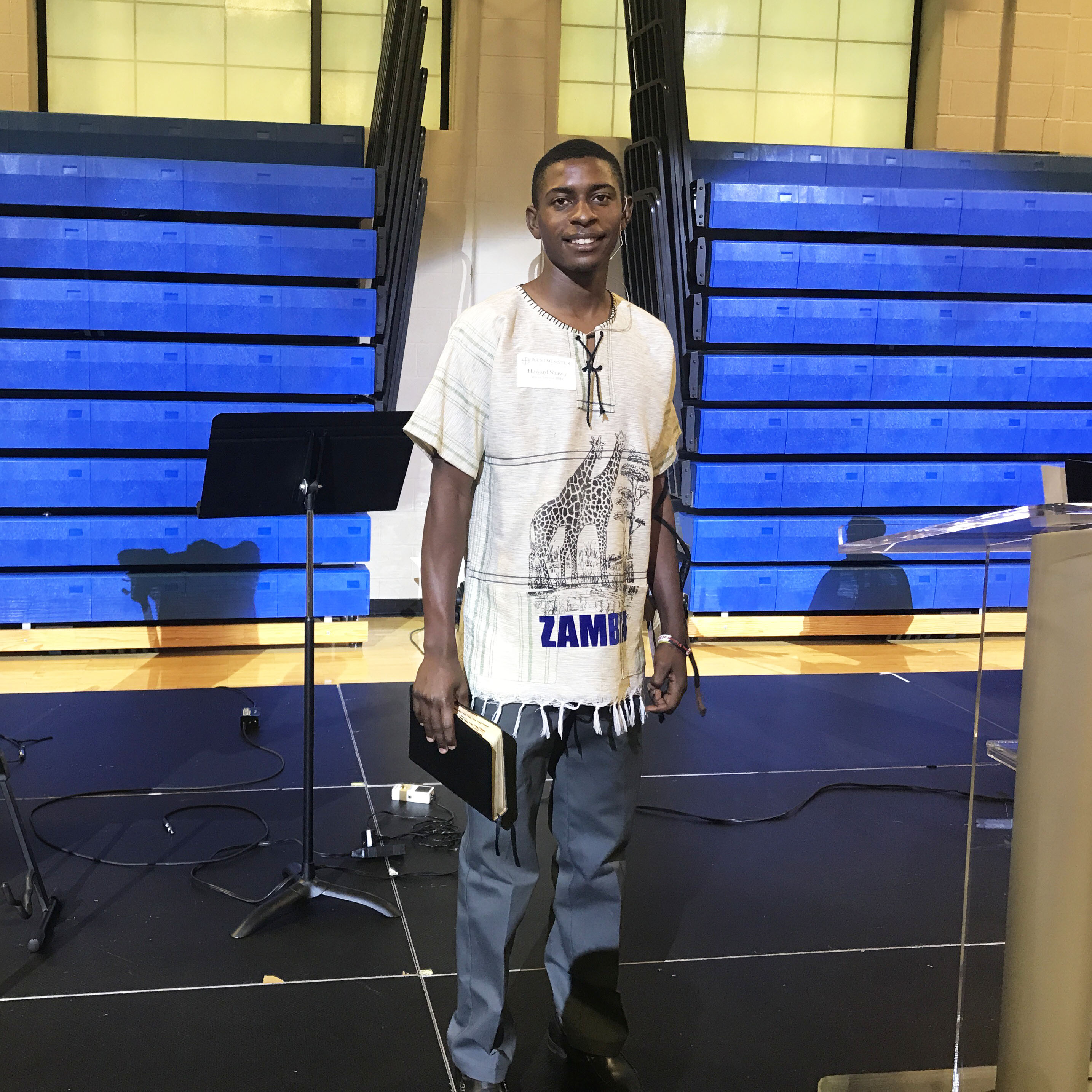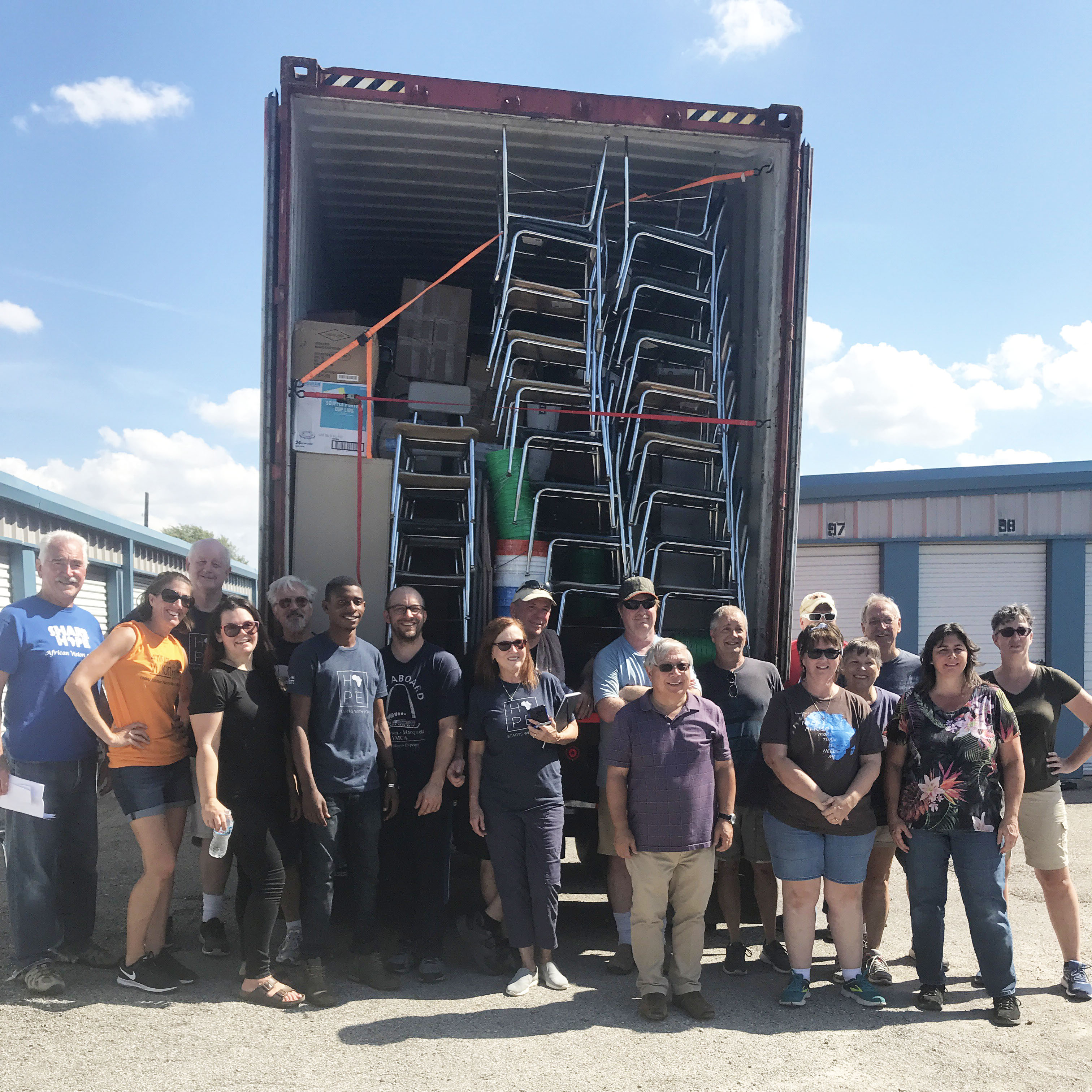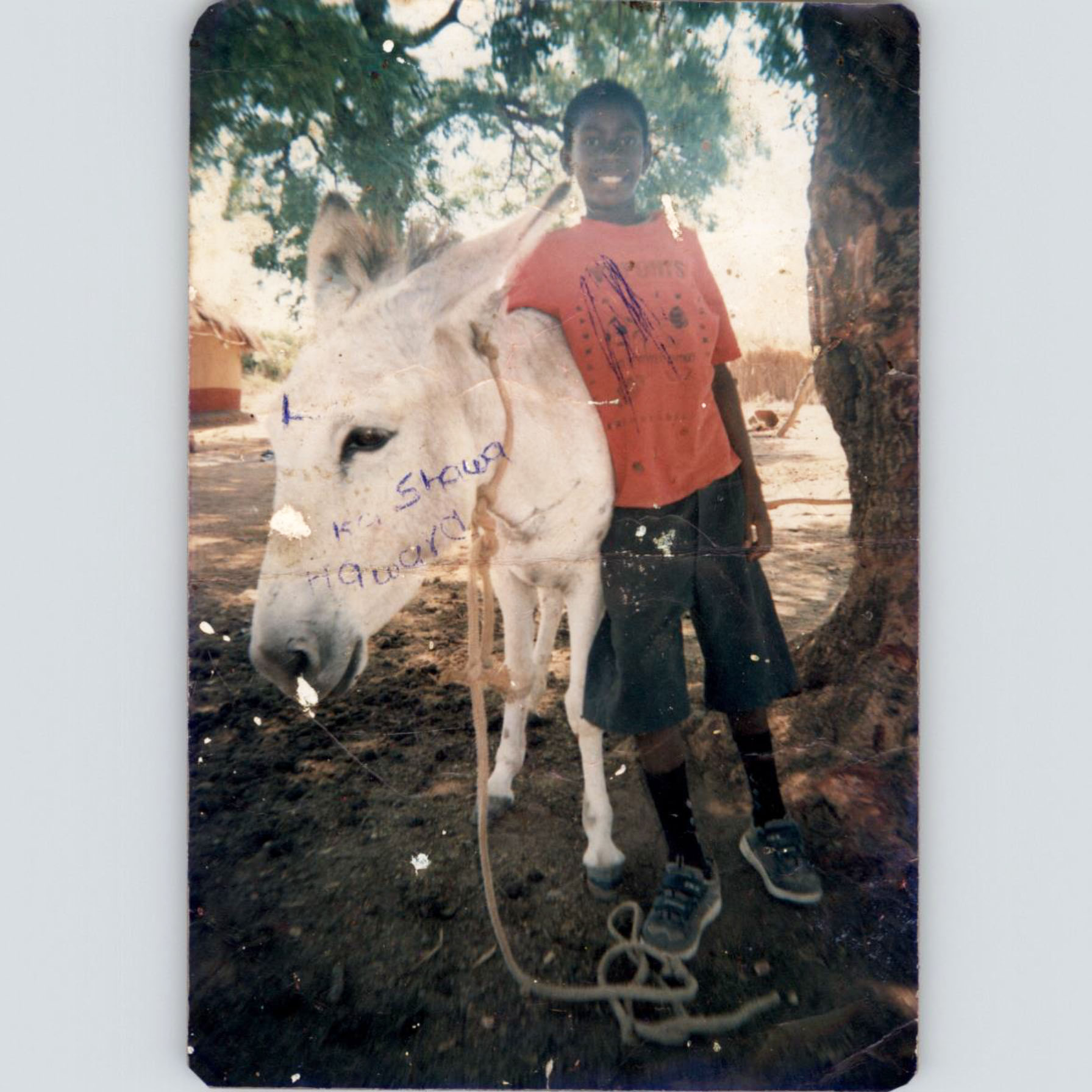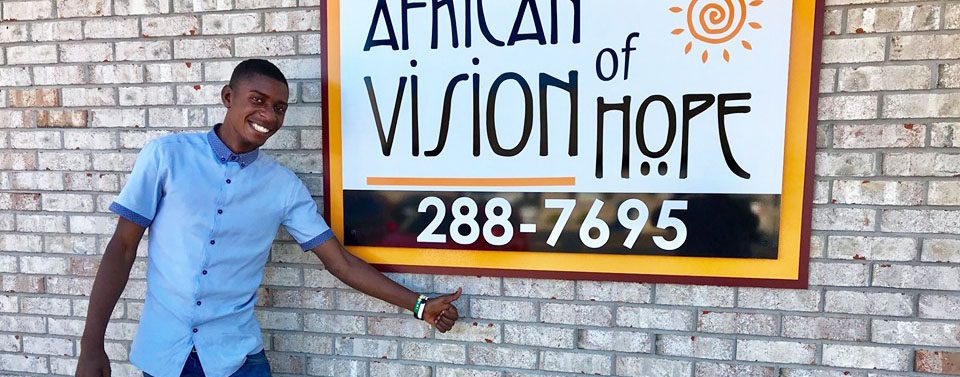When Haward was living in the jungle, sleeping in trees and wearing animal skins for clothes, he never could have dreamed that one day he would be stepping off of an airplane into the United States of America. The contrast between the world Haward grew up in, with mud huts as homes and baboon meat and ostrich eggs for dinner, and our world, where homes are voice-activated and dinner can be heated up in 30 seconds, is very stark. Haward is a member of the African Vision of Hope Child Rescue Team in Zambia. It is his job to help find students who have gone missing from school, rescue and bring them back to the classroom, and help keep track of student enrollment (among many other things). He was chosen to come to the United States to share his amazing story of how his life has been transformed (you can read it here). So far he has spoken to business leaders, church small groups, school chapel services, entire church congregations, and more. In his short time here, Haward has been thoroughly observing all of the differences between his home 8,417 miles away and this whole new world across the globe that he stepped into, such as:

Schools
“Your schools here are very big, and your classrooms are large. That is something that is very different where I am coming from. Buses come and pick up your children and also take them home. Also, every child has the opportunity to go to school through your public schools, and parents get in trouble if their children are not in school. In Zambia, every child has to walk to school, and every child has to pay to attend. The only school that I have found which is free is African Vision of Hope School. Parents raise money for school through doing small jobs like selling vegetables or doing manual labor, and grandmothers do jobs like sweeping the roads. They earn about $.30 USD a day doing these small jobs. Parents send their children into the streets to beg for money or food and bring it back to the family. This is why many Zambian children have lost interest in school, because if they are given money in the streets they are given a little bit of control over their life. Survival is their main concern. If they are in school, how are they going to make money to eat? They cannot think of the future because they have to worry about starvation. School becomes last priority. Survival is first.”
Pictured: Haward speaking to thousands of students at a Westminster Christian Academy chapel service.

Culture and Clothing
“Our cultures are very different. Here, your women do not wear chitenge (African fabric wrapped around their waist) and do not strap babies to their backs. In Zambia, women do not show their knees because, in my country, showing your knees represents having bad morals.That is just the culture. I have seen internet and electricity everywhere, and your power never goes out. In Zambia, the government is rationing our electricity, so we do not have power for 6, sometimes 12 hours a day. You have hot and cold water – and can choose what you want to use. In Zambia, it is rare to find someone who has a license, and even more rare for someone to own a car. We walk everywhere, and our roads have no sidewalks, so we just walk in the roads. In the USA it is the opposite. Almost everyone has a car, and barely anyone walks anywhere. The roads are huge, and if someone is walking and it is on a sidewalk there is a good chance it is for exercise, not because they don’t have transportation. In Zambia we walk because we have to.
Americans cooperate and value team work. They give ideas and share. Back home, it is a different scenario. You have to be careful what you say among friends. People do not work as a team and help each other. They do not share their resources. They only watch out for themselves. If our people worked as a team, we would be much better off.
I have seen many Americans do volunteer work. When you come to Zambia, you will not find volunteers. People have to work in order to survive. How will I pay for my rent, food for my family, and my children’s school if I am not being paid? I can’t go and work for someone for free while I am starving. Most people in the United States do not have to worry about daily survival. They know their kids are in school, they have food, they have a home which is theirs, and they might even have money in their account. They live a life where most times their biggest worry is ‘how am I going to have enough time to do everything I want to do and accomplish?’. The worries are different. Most of our differences center around what we have to do for survival. “
Pictured: Haward and a group of African Vision of Hope volunteers recently loaded a shipping container full of 20,500 pounds of supplies headed for our schools in Zambia, Africa.

Relationships
“First I will speak on the relationship between children and their parents. In Zambia, parents would rather let their children raise themselves. They let them wander in the streets all day and do not have much care for them like you do here. At home, a 6 year-old child walks to school and home, sometimes up to 3 miles, by themselves. Here you have no children living in the streets, and every child is being cared for. Your government protects the children who are being mistreated and finds them new homes. In Zambia, if you are a child living in a bad home or have lost your parents, you live in the streets. American parents worry so much about their young ones and care about them. They make sure they have eaten, are clean, and are going to school and learning. In Zambia, as you grow up, you also do not talk to your parents about what is going on in your life. We do not talk about our feelings, our relationships, our schooling or how our life is going. Our parents must ask us first about these things, and then we can tell them. But if they do not ask me, I do not tell them. Many times, our parents meet the girl/guy we are dating once we are engaged. It is kind of scary that we do not share any of these things with our parents. In the United States, parents want to know about your day and how you are feeling, and you want to share the same with them.
Next, I will speak on dating and marriage relationships. In the village where I grew up, it was very common to see families sell their young daughters, as young as 14, to men in exchange for money or cattle. If a man approaches the parents and asks for their daughter, they do not hesitate because they think it will help the rest of the family survive. These girls do not want to be married but are forced. Things like this happen too much. In the city, young ladies seek out marriage to escape their bad family situations or abuse at home, thinking it will bring them a better life. Often it just brings them HIV/AIDS and early pregnancy. I do not see these situations in America. Also, in Zambia, there is a higher population of women than men. So, men have multiple girlfriends along with a wife. This fuels the HIV/AIDS epidemic because men bring home the disease to the innocent mother of his children. Their future children are also infected, and those who are not are left living in the streets after their family dies of the disease.”
Pictured: Haward as a child, with the neighbor’s donkey.
Haward’s life goal is to become a force of change for his country and a vessel to bring people to the Lord. As part of the African Vision of Hope team, he will continue to pursue the mission of educating, equipping, and empowering the orphans and vulnerable children of Zambia and reaching Zambia’s children and youth until everyone has access to education. When children are educated, a whole world of possibilities opens up for them. They are able to change their country and close the gap between our 2 vastly different worlds. Our countries are very different, but everyone deserves the same access to opportunities, no matter where they were born.
Haward will continue to do incredible things for his country and generation. Thank you for being part of his story!


